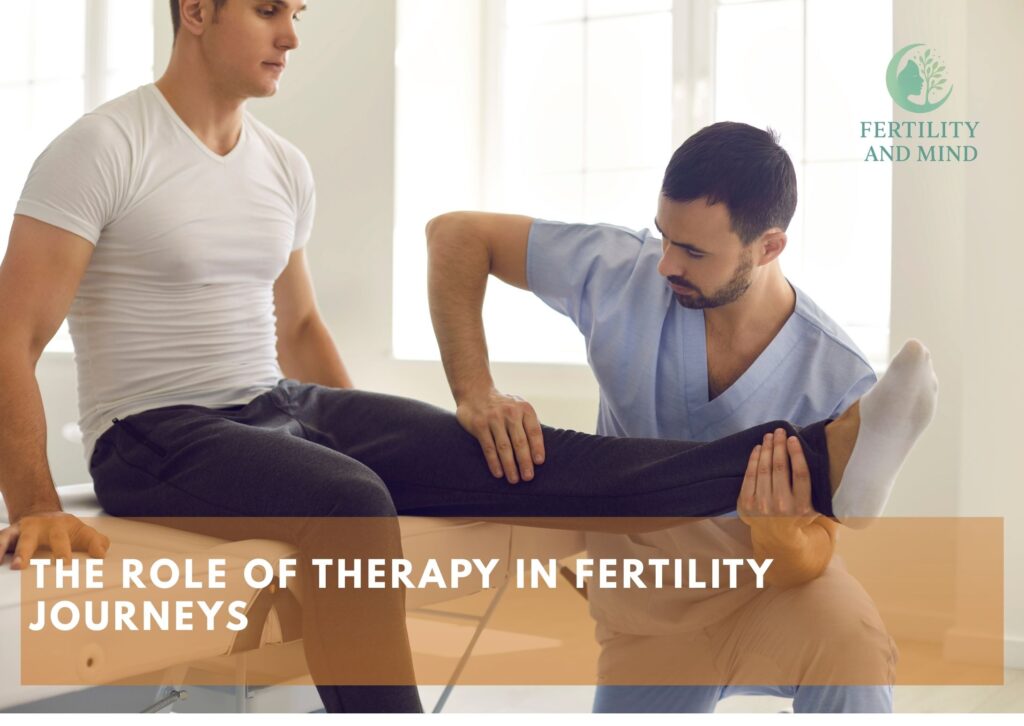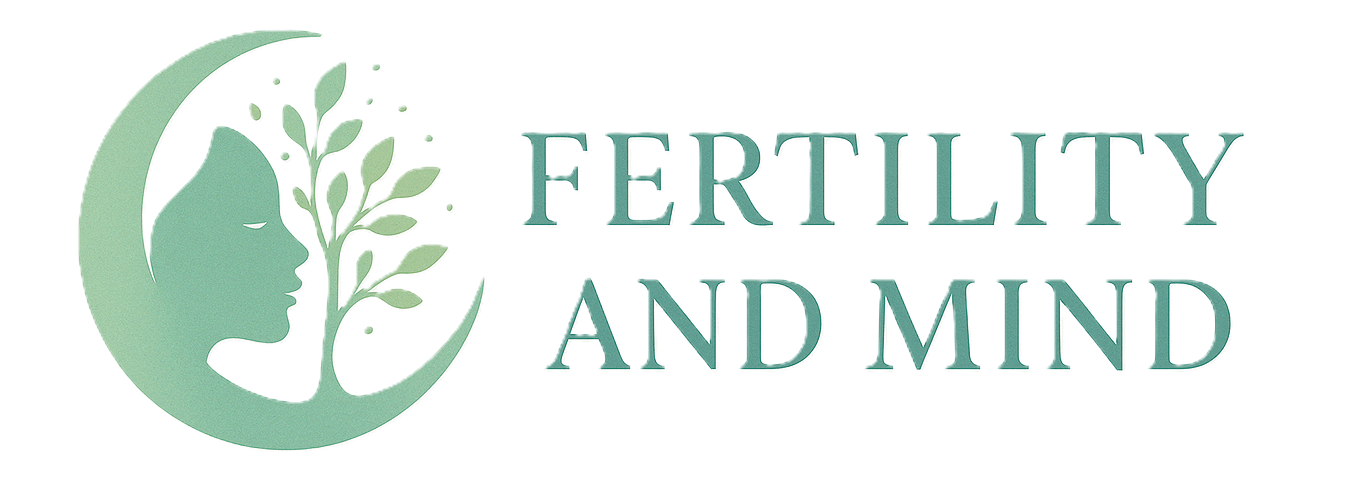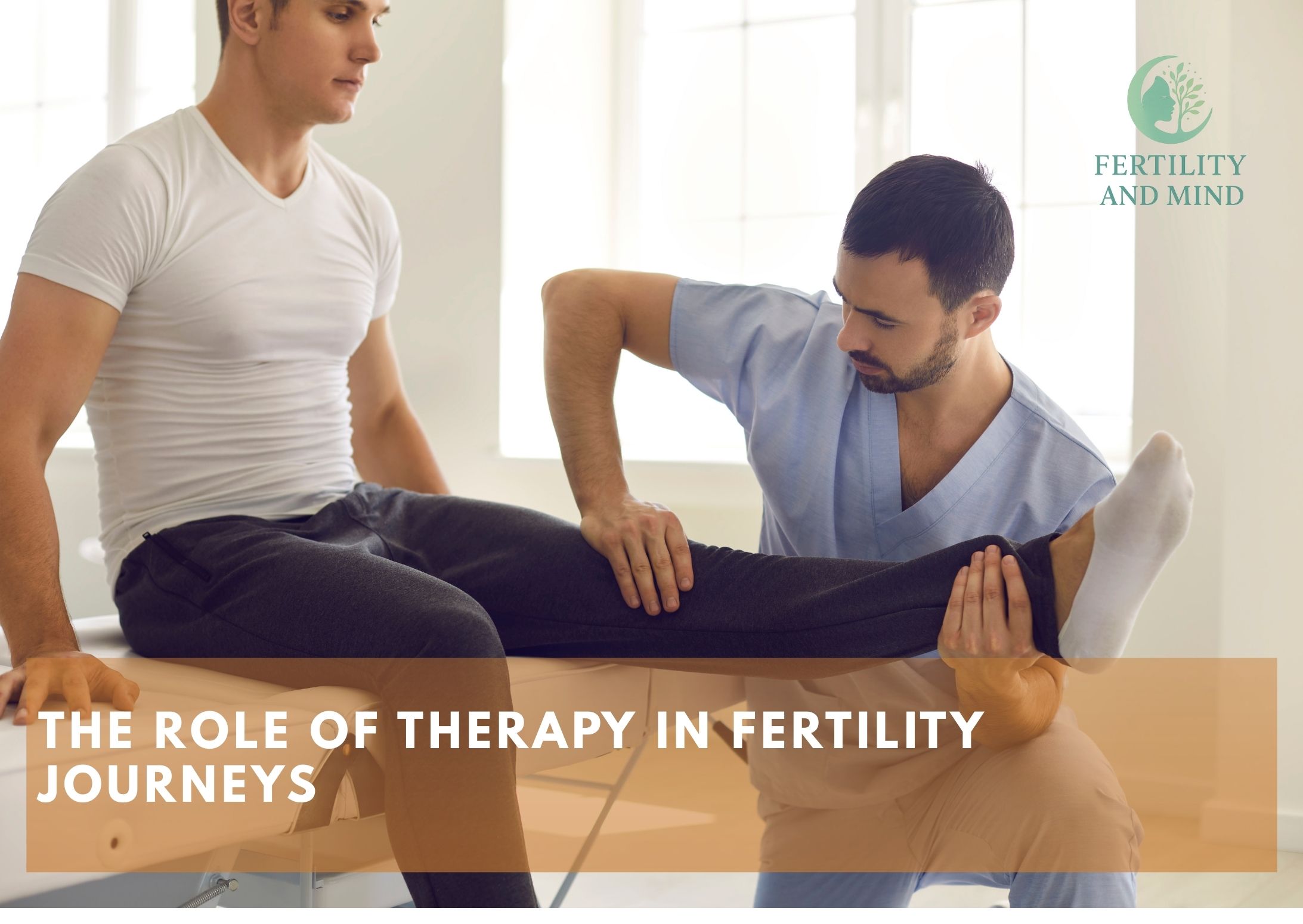
For many people, the path to parenthood is far from simple. Fertility treatments like IVF or IUI offer hope, but they also bring uncertainty, stress, and emotional strain. What often gets overlooked is the crucial role of therapy in supporting individuals and couples during their fertility journeys.
Therapy doesn’t change the outcome of medical treatments, but it changes the way people experience them helping patients process emotions, strengthen relationships, and face each step with greater resilience.
Why Emotional Support Matters in Fertility
The hidden emotional toll of infertility
Infertility isn’t just a medical diagnosis it’s an emotional one. Anxiety, grief, shame, and even anger are common feelings. Patients often describe the experience as a cycle of hope followed by disappointment, which can feel exhausting.
Common struggles during IVF, IUI, and waiting periods
The “two week wait” after embryo transfer or insemination is often described as one of the most stressful times. Uncertainty, endless testing, and constant comparisons can take a heavy toll on mental health.
How Therapy Can Help You Navigate the Journey
Coping with grief, anxiety, and shame
“When my clinic first suggested therapy, I hesitated. I didn’t want to feel like something was ‘wrong’ with me. But the moment I sat down with a therapist who understood fertility struggles, I finally felt heard.”
Therapy provides a safe space to acknowledge difficult feelings without judgment, turning overwhelming emotions into manageable steps.
Therapy tools: CBT, mindfulness, stress management
Evidence based methods such as Cognitive Behavioral Therapy (CBT), mindfulness, and relaxation exercises have been shown to reduce stress and improve emotional well being in fertility patients.
Building stronger communication with your partner
Fertility struggles often affect both partners, even if one is undergoing the majority of treatments. Therapy helps couples communicate openly and navigate conflict with greater empathy.
Types of Therapeutic Support Available
Individual therapy: creating a safe emotional space
Personal sessions allow patients to process fear, guilt, or grief at their own pace.
Couples therapy: navigating challenges together
“One of the most powerful sessions I attended was with my partner. We learned to ask each other, ‘Do you need support or space today?’ That simple question brought us closer.”
Support groups and fertility coaching
Connecting with others on similar paths can reduce isolation. Fertility coaching also provides practical tools for coping during treatments.
Evidence That Therapy Works
- Clinical trials show that fertility coaching and therapy significantly reduce stress at key stages like egg retrieval and embryo transfer.
- Systematic reviews confirm that CBT and mind body interventions improve mental health for patients undergoing fertility treatment.
- Despite high levels of anxiety and depression, many patients report not being referred to mental health professionals highlighting the importance of advocating for support.
Comparison Table: Types of Therapy in Fertility Journeys
| Type of Support | Focus | Best For | Benefits |
|---|---|---|---|
| Individual Therapy | Personal emotions, coping tools | Patients struggling with grief, anxiety, guilt, or fear | Safe space to process feelings, CBT & mindfulness tools, stress relief |
| Couples Therapy | Relationship dynamics, communication | Couples facing strain during IVF/IUI or after failed cycles | Improves empathy, strengthens teamwork, reduces conflict |
| Support Groups | Peer connection, shared experiences | Individuals or couples feeling isolated | Normalizes feelings, shared coping tips, emotional validation |
| Fertility Coaching | Practical tools, motivation, planning | Those who want structured strategies for navigating treatments | Guidance on lifestyle, mindset, decision-making support |
Personal Reflections: Finding Strength Through Therapy
“The two week wait used to consume me. My therapist suggested journaling each night and practicing a short breathing exercise. It didn’t change the outcome, but it changed how I felt waiting.”
“After a failed cycle, I was drowning in guilt. Therapy taught me that it was okay to grieve without blaming myself and that failure was not the end of hope.”
“Over time, therapy became less about fixing me and more about reminding me that I wasn’t alone. In a process so clinical and medical, therapy gave me a space that felt deeply human.”
When to Consider Professional Help
Signs it may be time to seek therapy
- Persistent sadness, guilt, or shame
- Relationship strain or constant arguments
- Difficulty coping with failed cycles
- Overwhelming anxiety during treatment
How to approach your doctor or clinic
Many fertility clinics work with psychologists or counselors specializing in reproductive health. If therapy isn’t offered directly, ask for referrals.
Finding specialized therapists in fertility
Look for professionals with experience in infertility, reproductive trauma, or couples therapy. Online support groups and professional directories can also help.
Conclusion: Therapy as a Fertility Ally
Therapy is not about “fixing” infertility it’s about caring for the emotional side of the journey. It offers coping tools, strengthens relationships, and provides a safe space for the fears and hopes that medical charts can’t measure.
In the fertility journey, therapy becomes more than an option. It becomes an ally a companion reminding you that while you may feel uncertain, you are never alone.

